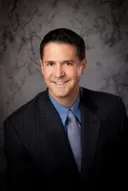5 Mistakes I Made Accepting an Attending Contract

everythingpossible/123RF.com
The final year of any residency is a time of accelerated independence, moonlighting, and an intense search for that first job as an attending. This decision is critical as one embarks on a life-long career in medicine, and it will undoubtedly blend a mix of analytics, emotion, and finance into the final analysis.
With a bit of candor, I want to share the mistakes I made when accepting my first contract as an emergency medicine attending. Despite some solid advice from seasoned mentors and friends, I let emotion and persuasion rule the day.
Rushing
I began the search early enough as I was headed into a competitive job market in an urban area. I had a solid grasp of the options and had several friends vying for positions in the same market. We compared notes, and each had preferences for one group or hospital.
What I wasn't prepared for was the pressure exerted by a few groups to quickly sign a contract. One physician sent me a contract a few hours after the interview and demanded a decision within 48 hours; it left me wondering why the hurry?
The job I wish that I had taken in retrospect told me that they would not be making a decision until all interviews were completed over the next three weeks. We had a great rapport, and several partners extended a strong opinion that a contract was headed my way. I just had to wait it out and see where the chips fell in four weeks.
With a bit of panic about not getting a job in this area, I let this factor cloud my judgment and drive the decision-making process. Even though I didn't take this job at the outset, I ended up working for this group later in my career, and it was an experience full of support and camaraderie.
Going for the Bank
At one point in my residency, I was making less than $2 per hour. This was long before the current medical residency work hour restrictions were put into effect. Being broke throughout medical school and residency fueled a desire to get what I thought should be mine. Unfortunately, this is an all too common mindset in those who have gone without and delayed gratification to reach a goal.
The options shaped up like this:
-Small group. Fun people. Nice hospital. Good administrative support. Decent hours and a mix of shifts. Lowest pay. In need of my help tomorrow.
-Large group. A mix of new and seasoned EM physicians. Older hospital and outdated emergency department. Tough patient mix. Decent pay.
-Multihospital group. Energetic and diverse physician and midlevel group. Good pay. Great benefits. Short shifts. Uncertain hiring timeline.
-A new group that broke off from a larger group. Great group of physicians. Nice and new ED with an addition in the works. Buy-in from current administration who wanted to keep them happy. Average benefits. Amazing pay. Long shifts of 12 to 14 hrs. Hey, maybe I can work less and make a great living. One of the partners even took me to see his Mooney, and as a former flight physician, I was in awe.
Ignoring the Warning Signs
When contemplating my newly minted skills, I felt on top of the world. As a graduate of a residency noted to be one of the busiest in the nation, I felt handling a small ED by myself was entirely reasonable. It was for the most part, except this suburb was rapidly growing right along with the ED census.
New physicians are a bit slower than their experienced counterparts - at least when it comes to handling complex patients in an ED setting. The 12-hour shifts were grueling, but the inability to do any paperwork or charting during the shift due to the crush of the non-stop volume of patients left me reeling for the first six months until I could figure out a system that worked.
The other factor I ignored was that several physicians had abruptly left that group. I glossed over that fact and assumed they were old or wanted to move out of the city. Some were pushed out, and others left due to a variety of factors that led to their unhappiness. I found myself assigned more shift hours than I had in residency. The exhaustion and frustration quickly mounted.
Not Looking at the Support Structure
Training at an urban academic institution affords a seamlessly unending supply of support. There are people to set up procedures, people to clean up after it's all over, staff to help with angry and hostile patients, security with dogs, and a cadre of amazing seasoned nurses to save your hide when you are about to mess up.
The reality of working in an urban or suburban ED is vastly different. I was lucky to have an ED tech a few shifts a month to help with procedures. The midlevel staff was hit or miss, and I was charged with supervising their care both in the ED and the urgent care down the hall. The nurses were swamped with the flood of triage patients and keeping the ED from imploding. Fourteen rooms, two nurses, and one doc to manage it all was a painful learning lesson.
Did I mention that ED physicians were responsible for responding to all in-house code blue calls and precipitous deliveries, as OBGYN was not in-house on a regular basis. I was promised less than one delivery per year; I had seven in the first six months of starting. They made me a stork pin for my white coat.
Ignoring the Power of a Mentor
Working in a single covered ED leaves little time for peer interaction except at shift change. Being part of a small group, someone was always on vacation, unavailable, or coming off a long night shift.
I soon found myself missing the friendships and mentors I developed during residency. We had played in a hockey league, had cookouts, and bounced ideas off on another. I looked up to these guys and kicked myself for not listening more carefully to their sage wisdom.
There were other mistakes during the decision process, but life is a learning process. I made a commitment and stuck it out for a few years with this group, and even helped them recruit my replacement. This job was a bit of baptism by fire, but I took away a substantial appreciation for my training and made several life-long friends during the experience.
Medicine is a practice, and after nearly two decades and practicing in a variety of urban, suburban, and rural environments, I have learned a vast amount about contracts, negotiating, and seeing through the smoke to understand what a contract offer truly entails.
Related Posts
